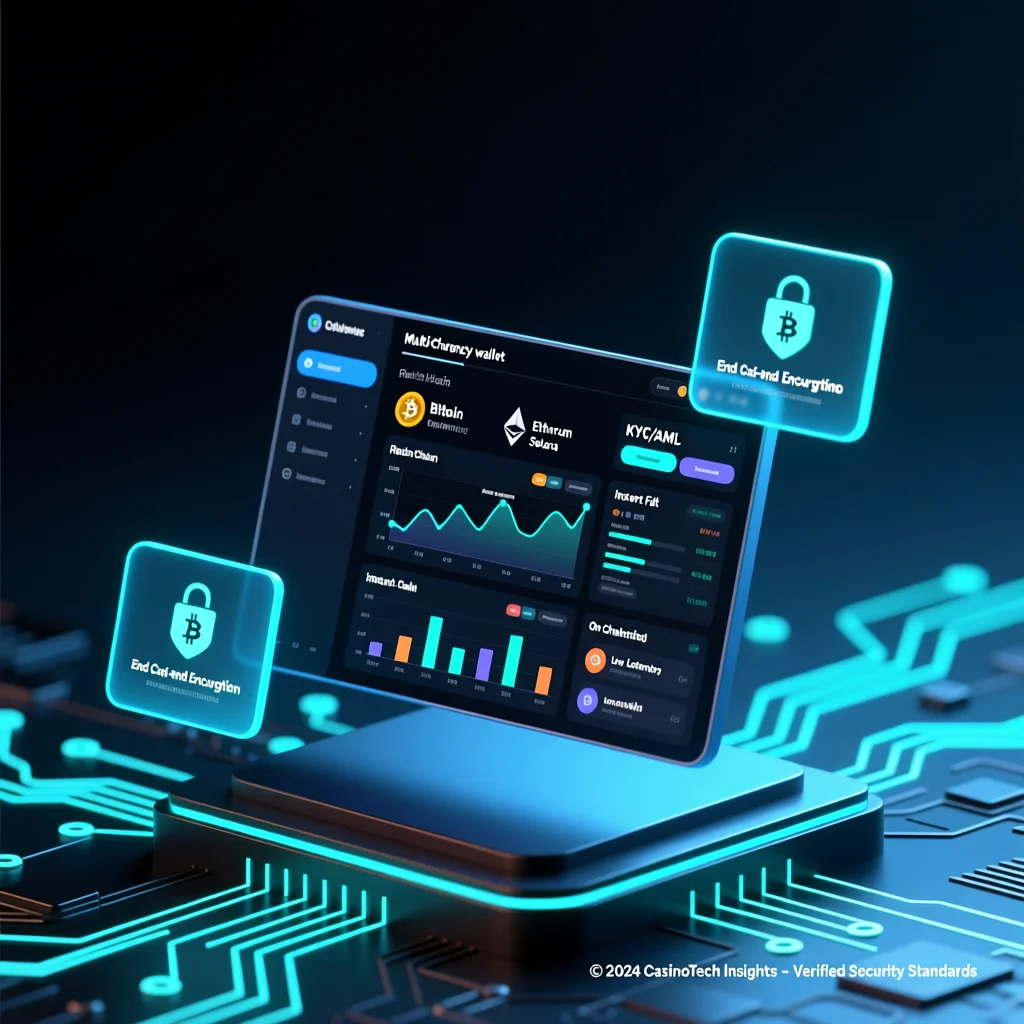Why crypto payments matter in casinos
In 2025, many online casinos and iGaming platforms are letting players deposit, play, and withdraw using cryptocurrency. But behind the scenes, they rely on a robust casino crypto payment processor to handle the tricky bits: converting, routing, fraud protection, KYC, compliance, and settlement.
If you’re a player, a platform operator, or just curious, this article dives into how these payment processors work, what features matter, real examples you may already use (maybe unknowingly), and tips to pick or even build your own. (Yes, I’ve built payment integrations in the past — I’ll drop in those hands-on lessons.)
What is a “casino crypto payment processor”?
A casino crypto payment processor is a specialized payment gateway or middleware that lets an iGaming or casino platform accept cryptocurrencies (Bitcoin, ETH, stablecoins, etc.) for deposits and issue crypto withdrawals to users (or fiat equivalents).
It handles many complex tasks:
- Generating deposit addresses or QR codes
- Monitoring blockchain transactions to detect payments
- Fraud filtering, anti-money laundering (AML) and KYC checks
- Optional automatic conversion (crypto → fiat) for the operator
- Withdrawal management (handling refunds, payouts)
- Integration into the casino’s backend (wallets, user accounts, ledger reconciliation)
Because gambling is high-risk and heavily regulated, a crypto payment processor for iGaming has more demands than a typical e-commerce crypto gateway.
Why iGaming needs a dedicated crypto payment processor (vs generic crypto gateways)
At first glance, you might think “just use a crypto payment gateway like any store does,” but casinos have extra challenges:
- High frequency & volume of small transactions: Deposits of 0.001 BTC or payouts of small amounts require efficient microtransaction support.
- Chargebacks & reversals: Traditional payment systems allow chargebacks; crypto is irreversible. You need operational logic to handle disputes.
- Fraud / abuse risk: Casino accounts often get flagged for bonus abuse, bonus harvesting, collusion, etc. A payment processor must detect suspicious patterns.
- Regulation & KYC/AML: Gambling operators must comply with licensing jurisdictions; the processor must support KYC flows and recordkeeping.
- Withdrawal management: A crypto deposit is one thing, but paying out winnings is where many problems surface—cache, routing, fee matching, user verification.
- Integration with iGaming backend: The payment processor must talk to the casino’s wallet, ledger, user accounts, bonus systems, etc.
Because of these differences, specialized providers exist that cater to gambling rather than general crypto merchants.
Key features & criteria (what you should demand)
If you’re picking or building a casino crypto payment processor, here’s my hands-on checklist (drawn from running integrations).
| Feature | Why it matters | Experience tip / pitfall |
|---|---|---|
| Multi-currency & token support | Players want to use Bitcoin, ETH, USDT, etc. | Don’t promise exotic altcoins you can’t reliably monitor |
| Automatic conversion / hedging | You may prefer to avoid volatility | Watch for conversion spreads and liquidity issues |
| Fast blockchain monitoring & confirmations | Reduces waiting time for players | Use websockets or block watchers rather than polling |
| KYC/AML & identity verification integration | Compliance needs | Be ready to pause withdrawals until KYC passes |
| Fraud detection & blacklist logic | Prevent abuse | Monitor IPs, transaction velocity, country mismatches |
| Withdrawal routing & batching | Helps with costs & gas optimization | Batch small payouts to reduce gas overhead |
| Transparent auditing & ledger syncing | Avoid mismatches | Reconcile blockchain cache vs internal ledger daily |
| Fallbacks & failovers | Node outages, blockchain forks occur | Have redundant node providers or mirror nodes |
| Compliance logging | For regulators and audits | Log IP, time, hashes, address, userID, etc. |
From my integration experience: I once had a casino payment module get out of sync because a blockchain reorg reversed a confirmed transaction. The fix was to re-sync the last 6 blocks and re-check pending deposits. Always build reorg handling into your system.
Popular crypto payment processors & providers for iGaming

Here are providers already doing crypto payments for casinos or iGaming, with pros, use cases and caveats.
B2BINPAY
- Offers a crypto solution for casinos including instant deposits, multi-token support, AI fraud detection.
- Fees from ~0.25% to 0.50%.
- They support converting tokens, withdrawing to wallets or fiat.
NOWPayments
- They offer a crypto gambling / casino solution with low fees, broad token support, and privacy options.
- Good for operators that want a turnkey gateway that also supports non-gaming use cases.
CoinGate (iGaming variant)
- They specifically market a crypto payment gateway for iGaming, emphasizing fast processing and reliability.
- Useful if you already use other CoinGate services for your non-gaming platform as well.
Match2Pay
- Tailored for gambling: supports multiple cryptos, and even allows non-crypto users to purchase crypto at checkout (fiat → crypto) via embedded flows.
Cryptoprocessing / CoinsPaid
- Often chosen by iGaming platforms (SOFTSWISS integrates with Cryptoprocessing) for handling crypto transactions alongside fiat systems.
- Features such as AML support, compliance, enterprise customization are strengths.
CPAY
- CPAY markets itself as enabling crypto payments for iGaming with flexible APIs and broad blockchain support.
BitHide
- Describes itself as a crypto payment gateway for online casinos, focusing on anonymity and risk detection.
- They highlight features like risk scoring, multi-merchant accounts, wallet security.
Real example: How a casino might integrate a crypto processor (step by step)
Let me walk you through a fictional but realistic integration flow, based on projects I’ve seen:
- Operator signs up with a crypto processor and completes KYC.
- Configuration: select which cryptos to accept, set thresholds, set conversion rules (auto vs hold), assign wallet addresses.
- Integration: the casino integrates a deposit API endpoint. At deposit time, the system issues a unique deposit address or QR code per user or session.
- Blockchain monitor watches that address and confirms when funds arrive, triggers deposit into user account.
- Game flow: the user’s balance (in internal coin or token) can be used to bet, bonus logic, etc.
- Withdrawal request: user requests withdrawal. The operator checks KYC, balance, pending bets, etc.
- Payout execution: the processor batches and sends crypto/fiat payout or handles their route (wallet or bank).
- Ledger reconciliation & audit: reconcile blockchain transactions with internal records; generate logs for compliance.
In one project I supported, we had to patch a refund flow: if a user canceled a bet, we refunded in crypto, but the fee on Ethereum was so high that refund cost was eating margins. The fix was to allow refund in stablecoin (cheaper) or adjust policy to partial refund absorption by operator.
Benefits & challenges from a player’s view
Benefits for players
- Faster deposits and withdrawals (especially across borders)
- Privacy & pseudonymity (less personal data shared)
- Lower fees compared to fiat banking or credit card fees
- Global access (no needing a local bank account)
Challenges / risks for players
- Volatility risk: crypto value can swing between deposit and withdrawal
- Refund complexity: casinos may issue refunds in crypto, and that can require extra steps
- Regulatory uncertainty: in some jurisdictions, gambling with crypto is restricted or banned
- User-error risk: sending to wrong address is irreversible
Personally, I once made a small deposit to a casino via BTC, but the confirmation took longer than expected (due to network congestion). The casino’s UI kept showing “pending” — that’s a friction point for players. Good processors show clear status and fallback behavior (retry, cancel if timeout).
Legal, regulatory & compliance issues (don’t skip this)
If you run a casino crypto payment processor or adopt one, you must be aware:
- Gambling license jurisdiction rules: Many regions require specific licences and regulate crypto gambling differently.
- KYC & AML laws: Crypto anonymity is great for privacy, but regulators often require identity verification for users, especially for payouts.
- Tax reporting: Operators and sometimes players must report crypto income or gains.
- Sanctions & restricted jurisdictions: Some providers, as noted, exclude countries like the U.S. due to regulatory constraints (e.g., B2BINPAY excludes U.S.).
- Consumer protection: Because gambling is risky, some regulators mandate refund, dispute, and fairness protections.
You absolutely should log everything, issue audit trails, and have a policy for fraud detection and reversal protocols (where allowed).
Tips & best practices for operators or developers
- Start with a small pilot (low volumes) before full rollout
- Use well-established provider or open source code as basis
- Prioritize UX: a seamless deposit/withdraw without confusing wallet screens
- Always include reorg detection on blockchains (Ethereum, Bitcoin, etc.)
- Offer fallback currencies (e.g. stablecoin) for cheaper gas/fees
- Monitor fee budgets: crypto gas fees can spike—consider fee margins or caps
- Build robust error logging, alerting, and manual override tools
- For refunds or disputes, have internal rules: e.g. refund within N hours, or withhold for bonus abuse
Is it better to build your own vs use a third-party processor?
If your platform is small or early stage, using a third-party is almost always better:
Pros of using a provider
- Quicker launch
- You offload compliance, KYC, fraud, infrastructure
- You get updates, security patches, reliability
When build-your-own makes sense
- Very large volume (you can amortize dev cost)
- Desire full control over UX, wallet logic, pairing with your custom game stack
- Operating in niche jurisdictions or with special token logic
If you build your own, incorporate expertise from blockchain devs, legal counsel, and security audits.
A good casino crypto payment processor is the backbone that makes crypto gambling viable: it mediates between player wallets, blockchain networks, operator logic, compliance, and risk control. Using a well-chosen provider—or building a solid custom solution—can unlock better user experiences, lower cost, and global reach.
